Unlike other industries such as retail and banking that have been transformed in recent years, the world of residential property management has hardly changed.
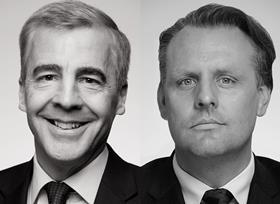
The way properties were managed two decades ago remains remarkably similar to the way they are managed today. Even commercial property management has evolved faster in recent years in the face of changes in technology and customer expectations.
However, things are beginning to change in our relatively sleepy sector. Traditional managers have recognised that they need to move quickly to avoid being outmanoeuvred by newer, more nimble operators.
The need for change
One of the key catalysts for change has been the changing lifestyle expectations of consumers, which have led property managers to increase the breadth and quality of their services. Another important driver has been the professionalisation of our asset class. Large professional investors have moved into the residential market and demand higher, more consistent standards from property managers. Their expectations are similar to those of large commercial property investors. As well as demanding the highest standards in areas like health and safety, they also want a partner who can help them deliver their projected returns.
Linked to this is the rise of the build-to-rent (BTR) market, which is affecting property management in a number of different ways. In the past, property managers were brought in only once a block of flats had been constructed. Now, we are being called upon much earlier in the process by BTR developers who have a different perspective to traditional residential developers. They want to know what makes a building successful over the long term because it is in their interests to ensure that their properties are as attractive in a decade’s time as they are today.
Harnessing data and experience
To deliver BTR at pace, investors need to manage not only rent levels but also occupancy levels, running costs and customer satisfaction, which affects all of these factors. Property managers have a wealth of data on how buildings are run and how people use them, which can be invaluable to the developers and their architects when they are drawing up new schemes. We need to make full use of the information and knowledge we’ve built up over the years to advise the new generation of investors looking to enter the market.
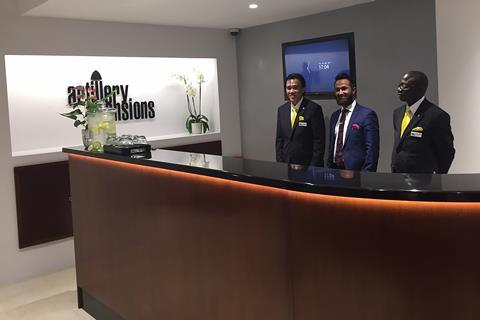
BTR developers and landlords have also brought about a sea change in the industry’s attitude towards renters. Whereas once we talked about tenants, now BTR pioneers talk about customers – and that change is also filtering through to the rest of the residential market. For high-end schemes, this can mean providing almost hotel-like services such as a 24-hour concierge and dry-cleaning.
In other cases, it means doing the basics well – solving maintenance issues quickly and keeping renters informed. Technology has huge potential in this regard. It helps us to maintain consistent and effective communication with customers and to ensure we respond to issues promptly.
Setting a higher benchmark
So how should traditional property managers make the most of new opportunities? At FirstPort, we think driving change and innovating is about people as much as it is about processes. As well as dedicating resources to developing better IT platforms and introducing new practices, it is also crucial to invest in training and ensure that staff feel motivated and engaged by what the organisation is looking to achieve.
We think we are some way along the journey, but there is still further to go. Health and safety is at the heart of everything we do so we’re very pleased to have achieved a five-star grading for the second year running in our Five Star Occupational Health and Safety Audit conducted by the British Safety Council. That success is part of a wider effort to improve the quality of our services while responding to the changing expectations of customers.
Another example is the creation of our concierge academy, which we believe has the potential to make a significant difference to our offering. The concierge is the main point of contact for residents and guests and their attitude can really set the tone for the whole development.
We’ve also made progress with the way we use technology. We now have an internal property inspection app to record and manage information more efficiently and our customer website is undergoing improvements too. Clearly there are opportunities to do much more. Lettings and commercial property management are already being transformed by technology, with the markets redrawn by those who have been most able to capture the needs of modern customers through new platforms. We’d love to see that change in our sector and are keen to explore ideas and collaborate with proptech innovators.
Challenges and opportunities
The increasing demands of more professional clients and the higher expectations of residents undoubtedly present more challenges to residential property managers. However, there are also new opportunities for traditional property managers to explore. For one thing, the scale of the market is increasing. The growth of cities means that more and more properties are owned as leaseholds, while the advent of BTR, with its focus on service and customer experience, has pushed property managers to do more than just solve maintenance issues.
Modern property management is not just about maintenance. It’s about the lives and wellbeing of residents, and the assets and investments of clients
Undoubtedly, more change will come. The increasing focus in the office market on health and wellbeing is likely to influence our industry as well. Residential property managers will have a big role to play, as how a building is run is a crucial factor in determining how healthy it is to live in.
Change is coming from government too, with sweeping reform of the housing market already under way. We support this because we want to be at the forefront of an industry that is driving up standards and improving customer confidence.
Today, property managers are critical to the provision of many of the amenities that residents are looking for in new developments. But they can also use their data and expertise to advise new entrants into the market – that makes our business far broader and more interesting than it once was. Modern property management is not just about maintenance. It’s about looking after the lives and wellbeing of residents, and the assets and investments of clients.
Nigel Howell is chief executive of FirstPort and Martin King is director of business development, marketing and communications at FirstPort
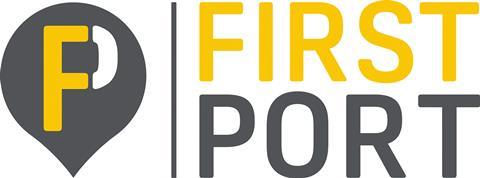
About FirstPort
With 40 years’ experience, FirstPort is the largest residential property management company in the UK. It manages more than 184,000 homes in England, Wales and Scotland across more than 3,900 developments, and has in excess of 3,000 employees dedicated to looking after people’s homes.
Topics
PW Perspectives – Mipim 2018
- 1
- 2
- 3
 Currently reading
Currently readingResi must respond to new customer demands
- 4
- 5
- 6
- 7
- 8
- 9
- 10
- 11


































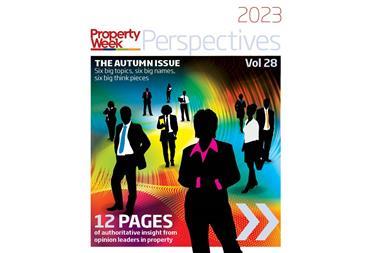
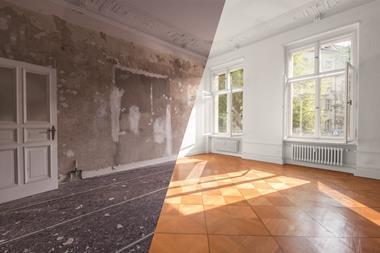
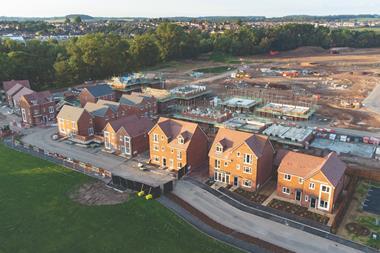


No comments yet